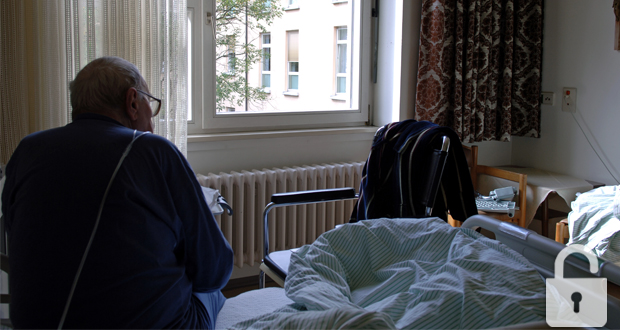The recent announcement of a Royal Commission into aged care has brought issues of the staffing levels and skill mix of residential aged care facilities into focus.
Demand for aged care services is increasing due to the ageing of the baby boomer population and post-war migration, leading to concerns with the costs of providing aged care services. To address perceptions of rising costs the current Federal government has made changes to aged care funding and legislation making it easier for private-for-profit groups to purchase and manage residential aged care facilities.
The changes made include increased user payments to facilities through the reintroduction of a refundable deposit to pay accommodation costs, the capacity to charge for additional services, and legislative changes to make it easier to transfer ownership of aged care beds. These changes, along with guaranteed funding from the Federal government through ACFI payments, make aged care attractive for investors.
At the same time concerns have been raised about having enough staff to meet service demand. Currently care services in residential aged care are provided by a combination of nursing and care worker staff, with the balance of staffing shifting towards care workers in the last 10 to 15 years. Care workers are cheaper to employ and provide a means of achieving cost savings and increasing returns to investors. Cost savings can also be achieved by employing fewer staff. As a consequence, residents are receiving fewer hours of care. In 2015, residents in Australian residential aged facilities received 39.8 hours of direct care/fortnight, which averaged up to 2.86 hours/resident per day.
A recent study which used activity timings for the care tasks required for residents with a range of diagnoses determined that between 2.5 to 5 hours of care were indicated, suggesting that residents are experiencing shortfalls in the number of hours of care they receive.
A team from Flinders University and the University of South Australia recently conducted a study of nurses’ and care workers’ perceptions of the level of care which was missed in residential aged care and the reasons why care was missed. The study, which was commissioned by the ANMF, surveyed 3206 staff working in aged care settings across Australia, including aged care wards in public hospitals and multi-purpose services. Missed care for this study was defined as required resident care that is omitted (either in part or in whole) or delayed due to multiple demands and inadequate staffing and material resources, and/or communication breakdown. The central finding was that staff believed that care was being missed in all facilities with higher levels of missed care reported in facilities which are privately owned.
Unscheduled tasks, such as responding to call bells and to toileting needs within five minutes were most likely to be missed, although there were deficits in completing all tasks. When asked to indicate the reasons why care was missed, staff in all facilities viewed too few staff, the complexity of resident needs, inadequate skill mix of nursing and care work staff and unbalanced resident allocation as the greatest reasons for missed care. Government employees reported significantly lower scores for 16 of the 27 items than staff employed in privately owned facilities with staff in private-for–profit owned facilities rating 14 of the 27 items as being a greater cause of missed care than staff in other settings. These differences were most notable in relation to access to resources.
Staff/resident ratios were also found to be higher in privately owned facilities meaning that each staff member was delivering care to more residents and had less time with each resident to complete care tasks. There is also some evidence from responses to open questions that enrolled nurses were being replaced by care workers and of employment of recently graduated registered nurses over more experienced registered nurses in private-for-profit facilities.
Given that people are being admitted to residential aged care when they are frail and more dependent on services than previously and that residential aged care facilities are dealing with higher proportions of residents with dementia, staff are dealing with residents who have more complex needs and greater need for nursing care. At the moment there are no mandated staffing levels for residential aged care with the standards only stipulating that adequate staffing be provided. This allows residential aged care facilities to reduce running costs through cutting staffing levels. It may be timely therefore, for the Royal Commission to explore the impact of private-for-profit ownership on quality of care and to consider the establishment of mandated staffing levels to ensure resident safety.
Dr Julie Henderson is a Research Associate at Flinders University where she undertakes nursing and public health research.
Do you have an idea for a story?Email [email protected]
 Aged Care Insite Australia's number one aged care news source
Aged Care Insite Australia's number one aged care news source


Profit before people (residents) Greedy investors who don’t care about the care of frail people with medical health issues. Salaries will always constitute the greater part of these care facilities so therefore there will be cut backs on staff, maintenance and catering and equipment. There are no mandated levels for staffing ratios in these facilities so therefore the nursing care of residents are comprised. These care facilities are an offshoot of hospitals which can not afford residents to take up acute beds so they are shunted off to a profit making facility whose only reason to be in the business is to make money/profit at the expense of the venerable people who most have worked hard and lead productive lives and now treated like “animals” i.e being cared for by non caring and non experienced staff/carers.